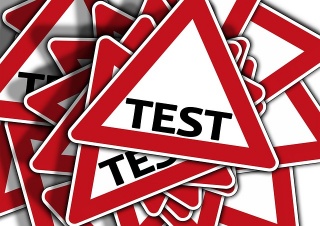Introduction to entrepreneurship/IENT102/Ethics/Quiz
From WikiEducator
Jump to: navigation, search
The questions published at the end of each learning pathway are re-used for the knowledge test for learners interested in earning a digital badge or certificate of participation for the Introduction to entrepreneurship (IENT102) micro-course. Please consult the Certify participation page for more information.
True - false questions
Indicate whether the following statements are true or false:
- Ethics affect how people live their lives and make decisions.
- True
- Correct.
- False
- Incorrect, revisit the course materials for IENT102.
- True
- The terms ethics and morality are often used interchangeably in the context of this micro-course.
- True
- Correct.
- False
- No, in the context of this business course, they are used interchangeably. However, philosophers will distinguish between 'ethics' and 'morality'.
- True
- Describing a company as ‘good’ means that they are an ethical company.
- True
- No, only partially correct. 'Good' may refer to generating significant profits or shareholder return, but the business may be using unethical practices for revenue generation.
- False
- Correct. Well done.
- True
- Business decisions which are ethical are the same as decisions which are legal.
- True
- Incorrect, an unethical business practice may still meet some legal requirement, for example, declaring tax on income received, even though the business activities are deemed unethical.
- False
- Correct. Well done.
- True
Multiple choice questions
- Indicate which ONE of the following statements about normative ethics is TRUE:
- Normative ethics is concerned with the application of ethics to specific issues
- No, this is false. Applied ethics is concerned with the application of ethics to specific issues.
- Normative ethics is concerned with finding out which actions and/or personal characteristics are considered good or bad
- Yes, this is correct.
- The word ‘normative’ means the same as the word ‘normal’
- No, this statement is false. The word normative comes from ‘norm’, which usually means principle, standard, or rule.
- Normative ethics is concerned with three main ideas: decision, action, and outcome
- No, this is false. Normative ethics focuses primarily on two things: action and virtue.
- Normative ethics is concerned with the application of ethics to specific issues
- According to the content of this micro-course, indicate which of the following topics is LEAST likely to appear in a Business Ethics course:
- The relationship between ethics and the law
- This is likely to appear in a Business Ethics course.
- International shipping laws
- That’s right. This is NOT likely to appear in a Business Ethics course. International business and the application of ethics would probably be covered quite broadly, but the details of shipping laws are not likely to be included.
- Business ethics and the environment
- This is likely to appear in a Business Ethics course.
- Different perspectives within business ethics
- This is likely to appear in a Business Ethics course. Business ethics can differ from different perspectives (for example, those of the employer, the employee, and society as a whole).
- The relationship between ethics and the law
- Indicate which one of the following statements about technology and ethics is FALSE:
- Technology has many implications for business ethics
- This statement is true.
- Some people believe that technology may cause harm in many situations, while others believe technology can contribute to solving many of society’s problems
- This statement is true. These contrasting views can affect the position that businesses take concerning technology.
- Ethics around medical technologies can be particularly challenging
- This statement is true.
- The Internet has made the link between technology and ethics much simpler
- This statement is false. The rise of the Internet has resulted in significant ethical issues, including problems with cybercrime, data protection, privacy, and intellectual property.
- Technology has many implications for business ethics
- Which multi-national corporation bought up Honest Tea in 2011, raising concerns about the future of the tea company’s ethical values?
- Coca Cola
- That’s right.
- Unilever
- No - look again at the case studies in the Business Ethics pathway of Planning a Business Start-up (IENT102).
- Nestle
- No - look again at the case studies in the Business Ethics pathway of Planning a Business Start-up (IENT102).
- Amazon
- No - look again at the case studies in the Business Ethics pathway of Planning a Business Start-up (IENT102).
- Coca Cola
